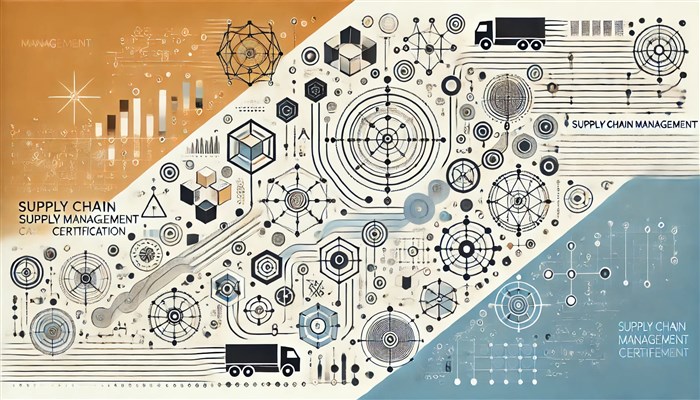Unable to find what you're searching for?
We're here to help you find it
In the rapidly evolving business world, effective supply chain management is a key success factor. Whether you're an industry professional looking to expand your skill set or a fresh graduate aiming to kickstart your career, choosing the right supply chain management certification can significantly impact your career trajectory.
In today’s fast-evolving global economy, supply chain management (SCM) is critical to the success of organizations across industries. Supply chain professionals are responsible for optimizing the flow of goods and services, improving efficiency, and minimizing costs. To stay competitive, individuals in this field need to acquire certifications that demonstrate their expertise and commitment to professional growth.
Selecting the right supply chain management certification can be challenging, especially with the wide range of options available. The right certification can enhance your skills, increase your job prospects, and boost your earning potential. In this guide, we’ll explore how to choose the most suitable SCM certification for your career path, comparing popular certifications like the Certified Supply Chain Professional (CSCP), Certified in Production and Inventory Management (CPIM), and the Chartered Institute of Procurement & Supply (CIPS).
The first step in selecting the right SCM certification is to assess your career goals and the specific industry you want to work in. Different supply chain certifications are designed to cater to various areas of expertise within the field, such as logistics, procurement, inventory management, or supply chain strategy.
For example, if you’re aiming to specialize in global supply chain management, the CSCP certification offered by the Association for Supply Chain Management (ASCM) might be the right choice for you. On the other hand, if you are more focused on procurement and purchasing, certifications like CIPS will be more relevant.
Ask yourself:
Clarifying these questions will help you narrow down your certification options based on your specific interests and professional goals.
Another important factor to consider is your current level of experience in supply chain management. Some certifications are designed for beginners or entry-level professionals, while others are more advanced and require several years of experience in the field.
For Entry-Level Professionals
If you’re just starting out in the supply chain field or looking to make a career switch, foundational certifications will help you build the essential knowledge needed to advance. Beginner-friendly certifications, such as:
For Mid-Level and Advanced Professionals
If you already have a few years of experience in supply chain management, you may want to pursue a certification that reflects your expertise and helps you move into more specialized or leadership roles. Mid-level certifications like:
To help you make an informed decision, here’s a detailed comparison of three popular SCM certifications: CSCP, CPIM, and CIPS.
Certified Supply Chain Professional (CSCP)
Certified in Production and Inventory Management (CPIM)
Chartered Institute of Procurement & Supply (CIPS)
Certifications often require both a financial and time commitment. Consider the following:
Once you’ve chosen the right certification, it’s important to prepare effectively for the exam. Most organizations that offer certifications also provide study materials, practice exams, and training courses to help candidates succeed.
For example:
Additionally, joining study groups or working with mentors can help you stay motivated and on track with your certification goals.
When it comes to selecting the right supply chain management certification, one size does not fit all. The choice depends on your career objectives, professional experience, and personal interests. Some of the key factors to consider include:
1. Course Content: Ensure that the supply chain management course covers all the essential topics such as inventory management, procurement, logistics, and demand planning.
2. Accreditation: Choose a widely recognized and accredited certification like the SCM certification that employers value.
3. Mode of Delivery: Decide whether you prefer the flexibility of online courses or the structure of classroom-based learning.
4. Course Duration: Consider the time commitment involved. Some programs may require several months of study, while others can be completed in a matter of weeks.
If you're looking for a leading IT training company that provides certifications in top technology courses, look no further than Koenig Solutions. With a wide range of supply chain management courses designed to cater to different learning needs, Koenig Solutions is the go-to choice for many professionals worldwide.
Conclusion
Choosing the right supply chain management certification requires careful consideration of your career goals, industry focus, experience level, and the time and financial commitment involved. Whether you opt for CSCP, CPIM, or CIPS, obtaining a certification in supply chain management can open doors to new opportunities, enhance your expertise, and increase your earning potential.
By selecting the certification that aligns with your aspirations, you’ll be better equipped to advance in your supply chain career and make a meaningful impact in your organization.

Aarav Goel has top education industry knowledge with 4 years of experience. Being a passionate blogger also does blogging on the technology niche.










